Well, I'm getting geared up to produce the next batch of stuff for our[1] Fijian Rural Electric Light project.
First up, prototype #2 of the Solar Box. You might remember prototype #1, I've done some work to make it cheaper and simpler to construct.
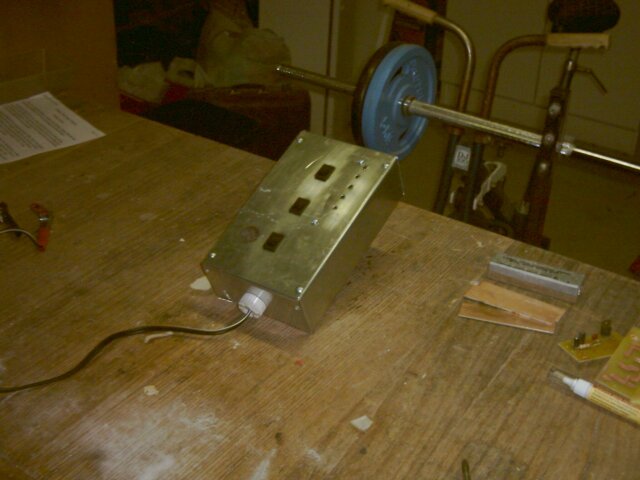
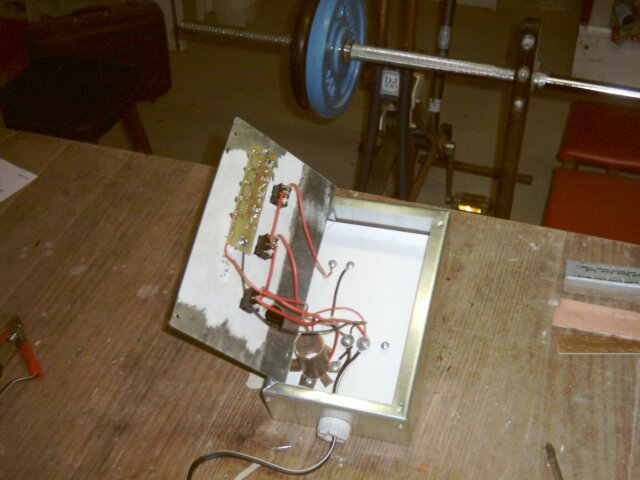
The major changes are that it now only has a single cigarette lighter socket, and the other 2 switches are for hard-wired loads. I've also done away with the connector strips, the connections are now made via home-made ring connectors[2] and screws into the baseboard.
I've also built a sheetmetal folder, sized specifically for constructing the boxes:
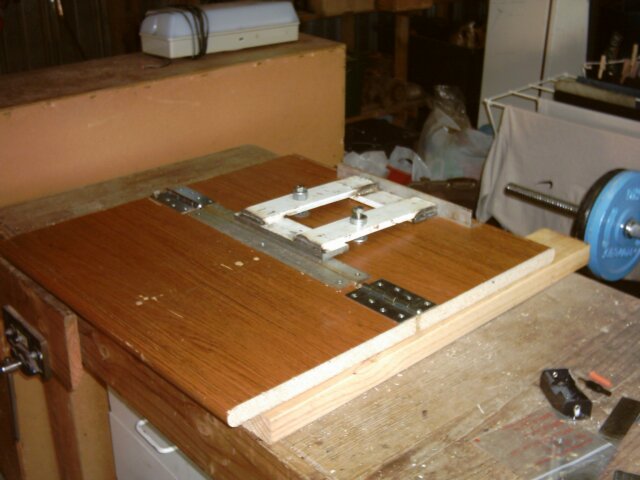
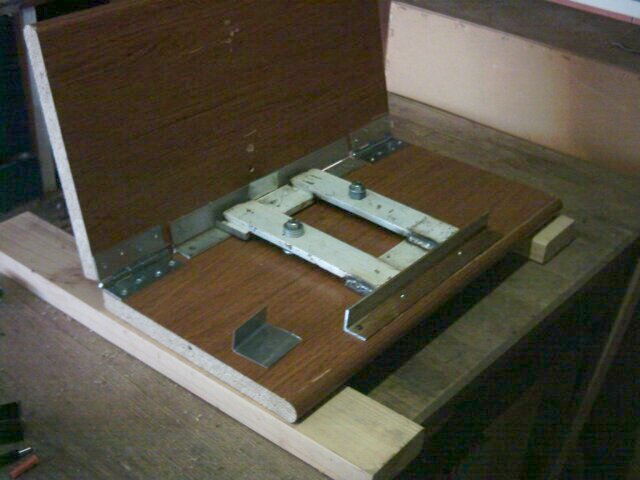
If you're into making PCBs cheaply, I've stopped buying the special $8 lacquer ink pens and started using liquid-paper correction pens instead. The results are quite good. I've also given up on ferric chloride etchant, since I discovered that copper chloride is far cheaper and somewhat more environmentally friendly.
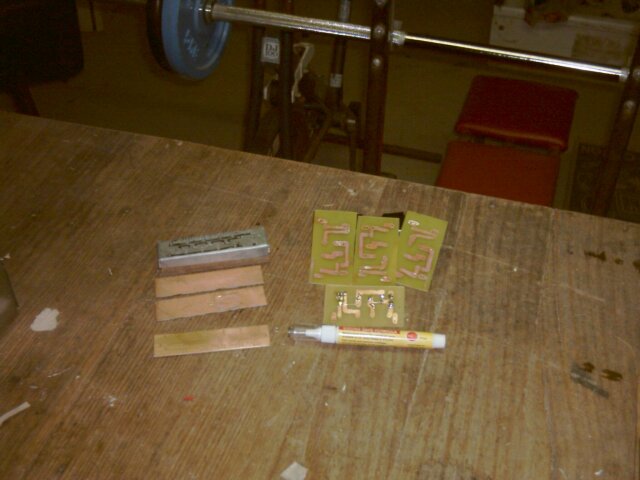
...and finally, here's the computer lab I'm setting up for the school. The laptops are Acernote Light 370 machines, with a P133 processor and 64MB of ram. They were cheap[3] because they have no hard drives (easy to replace) or caddies (impoosible to find), so I've set them up to boot from the CD-ROM and load DR-DOS and Breadbox Ensemble into a ramdisk. It takes about 60 seconds from powering up the machine to being able to do useful work, which I think is quite reasonable.
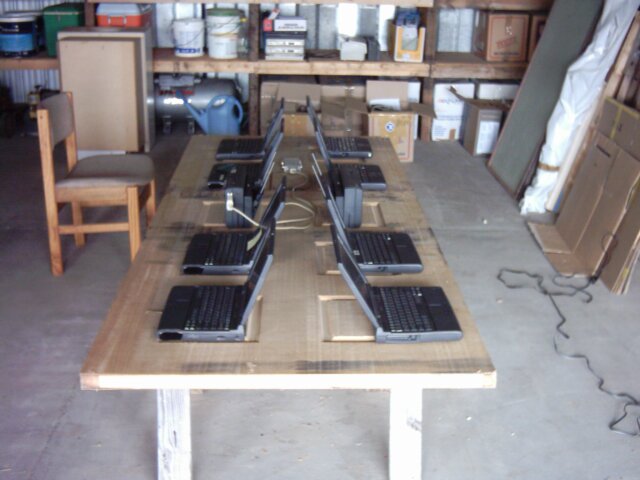
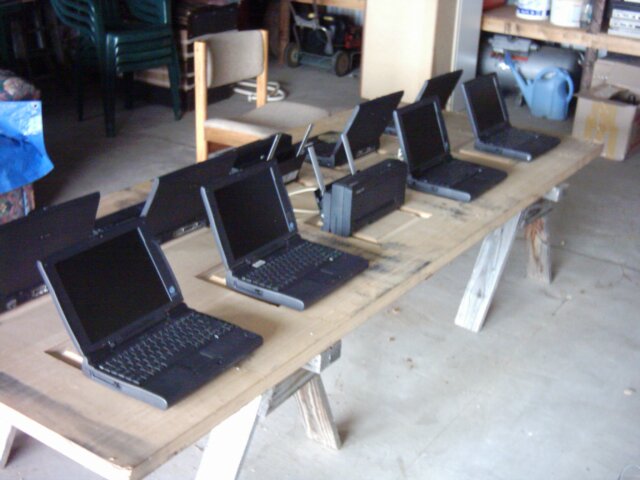
The printers are HP Deskjet 340s, which need 10.6VDC @ 1500ma. A simple LM317 voltage regulator should provide that quite comfortably. The computers specify 18VDC, but work just fine from 12VDC. Each machine takes about 1500mA to run. The lab will be hooked up to a 12V/500Ah battery bank, which will be charged by 80W of solar, a 200W wind generator, and a 12A battery charger (for the 4 hours per night that the generator is running).
I've also sourced a couple of automatic 4-way printer switches, which are much simpler to set up that network cabling.
BTH
[1] "Our" = Richard and Me.
[2] These are made by making a loop in the end of the wire, then tinning it thoroughly with solder.
[3] Average of $10 each from e-bay.